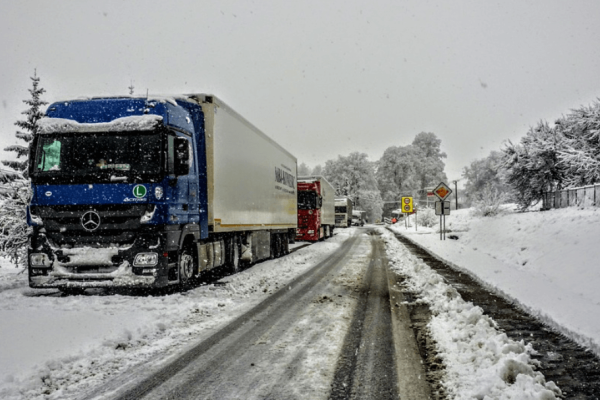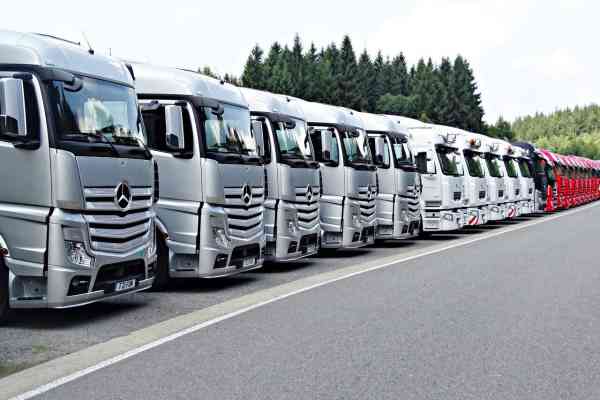May 7th, 2020 | 05:50 CEST
Daimler, dynaCERT, NEL, Tesla - who will double the share price in 2020?
In the past few weeks, many vehicles have come to a standstill. Despite the decrease in traffic, pollution levels at measuring stations in German city centres have not decreased, as reported in the media. Detached from this realization, politicians are bringing a scrapping bonus into play, which is intended to boost vehicle sales. The primary aim of the redistribution of taxpayers' money is to have roadworthy cars scrapped and then use government subsidies to buy new electric cars. Against the background that only a proportion of the energy mix consists of renewable energies and that there is still no solution for the disposal of lithium batteries, the environmental balance is questionable. There are things that cannot be explained to children or should not even be tried.
time to read: 3 minutes
|
Author:
Mario Hose
ISIN:
CA26780A1084 , DE0007100000 , NO0010081235 , US88160R1014
Table of contents:
Author
Mario Hose
Born and raised in Hannover, Lower Saxony follows social and economic developments around the globe. As a passionate entrepreneur and columnist he explains and compares the most diverse business models as well as markets for interested stock traders.
Tag cloud
Shares cloud
Immoral offers
"Buy a car with a government bonus!" Sounds tempting, but actually it's not. If the state takes action with subsidies, it's not the state's money, it's the citizens' money. The redistribution mechanism of the state influences the market, which actually sees no need for action. Through different taxes, the public coffers are replenished. In the case of electric cars, the market is particularly stubborn, and probably with good reason.
As long as the eco-balance of electric cars does not offer an advantage, the reliable combustion engine can continue to roll. Ultimately, the electricity must come from somewhere. An electric car with a lithium battery that is charged with electricity from gas and coal-fired power plants makes just as much moral sense as ordering a vegan pizza with salami and ham.
Protection of the environment comes first
Emissions of the greenhouse gas CO2 in Germany fell by 4.6% last year. The Federal Republic of Germany is responsible for around 25% of total emissions in the European Union (EU). Overall, the statistics authority Eurostat was able to determine a 4.3% reduction in CO2 pollution in the EU. In connection with the corona pandemic, it is to be expected that a higher decrease will be recorded in 2020. From the German point of view, it is pleasing that an above-average value was achieved.
However, nobody knows whether the savings will have an impact on the climate. Certainly, protecting the environment is good and important. Many measures are also visible and measurable. The idea, however, that humans can turn the climate in one direction or another sounds kind of crazy. The climate has been changing for millions of years, even before there were SUVs and sports cars.
People have other concerns
Whether people with existential worries in the times of corona and short-time work benefits on their accounts will decide to buy a new car will become clear at the latest when Daimler and Tesla publish their results for the second quarter of 2020.
Retrofitting instead of scrapping
Technologies of the future, which can offer real added value for a modern society, are based on hydrogen as a catalyst or storage medium. dynaCERT has found a solution with a hydrogen technology for retrofitting diesel engines of all kinds that reduces NOx emissions by up to 88% now and today. Particulate matter emissions are also reduced by up to 55% and CO2 emissions have been measured to be reduced by up to 10%. A noticeable advantage is the saving in fuel consumption of up to 19%.
The hydrogen is produced on board from distilled water as required and is added to the combustion process via the air supply as a catalyst. By increasing the efficiency of the combustion, the diesel engine becomes considerably 'greener' and the good piece does not have to be scrapped.
Relations on the test bench
Compared to batteries, hydrogen as an energy carrier is certainly the cleaner option because the manufacturing and recycling process of the energy storage device is omitted, but similar to electricity for battery cars there is a lack of charging or refueling infrastructure. NEL has made a name for itself in the hydrogen scene by developing and manufacturing components for the infrastructure of the hydrogen ecosystem.
The market value of NEL currently amounts to EUR 1.47 billion and in comparison, dynaCERT with a market value of EUR 138 million still has catch-up potential. With a market capitalization of EUR 128 billion, the battery car manufacturer Tesla is almost four times as valuable as the versatile car manufacturer Daimler with EUR 33 billion. In the business world in which we live, the battle is fought with tough strings, and some CEOs may have special supporters. But at the same time, it is worrying that innovations that are supposed to improve life need subsidies and it seems to be necessary to create an environment of panic and fear to stimulate demand.
Conflict of interest
Pursuant to §85 of the German Securities Trading Act (WpHG), we point out that Apaton Finance GmbH as well as partners, authors or employees of Apaton Finance GmbH (hereinafter referred to as "Relevant Persons") may in the future hold shares or other financial instruments of the mentioned companies or will bet on rising or falling on rising or falling prices and therefore a conflict of interest may arise in the future. conflict of interest may arise in the future. The Relevant Persons reserve the shares or other financial instruments of the company at any time (hereinafter referred to as the company at any time (hereinafter referred to as a "Transaction"). "Transaction"). Transactions may under certain circumstances influence the respective price of the shares or other financial instruments of the of the Company.
Furthermore, Apaton Finance GmbH reserves the right to enter into future relationships with the company or with third parties in relation to reports on the company. with regard to reports on the company, which are published within the scope of the Apaton Finance GmbH as well as in the social media, on partner sites or in e-mails, on partner sites or in e-mails. The above references to existing conflicts of interest apply apply to all types and forms of publication used by Apaton Finance GmbH uses for publications on companies.
Risk notice
Apaton Finance GmbH offers editors, agencies and companies the opportunity to publish commentaries, interviews, summaries, news and etc. on news.financial. These contents serve information for readers and does not constitute a call to action or recommendations, neither explicitly nor implicitly. implicitly, they are to be understood as an assurance of possible price be understood. The contents do not replace individual professional investment advice and do not constitute an offer to sell the share(s) offer to sell the share(s) or other financial instrument(s) in question, nor is it an nor an invitation to buy or sell such.
The content is expressly not a financial analysis, but rather financial analysis, but rather journalistic or advertising texts. Readers or users who make investment decisions or carry out transactions on the basis decisions or transactions on the basis of the information provided here act completely at their own risk. There is no contractual relationship between between Apaton Finance GmbH and its readers or the users of its offers. users of its offers, as our information only refers to the company and not to the company, but not to the investment decision of the reader or user. or user.
The acquisition of financial instruments entails high risks that can lead to the total loss of the capital invested. The information published by Apaton Finance GmbH and its authors are based on careful research on careful research, nevertheless no liability for financial losses financial losses or a content guarantee for topicality, correctness, adequacy and completeness of the contents offered here. contents offered here. Please also note our Terms of use.




